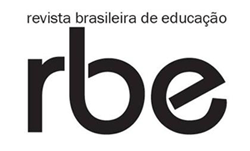Resumo em Português:
A intercultura refere-se a um complexo campo de debate entre as variadas concepções e propostas que enfrentam a questão da relação entre processos identitários socioculturais diferentes, focalizando especificamente a possibilidade de respeitar as diferenças e de integrá-las em uma unidade que não as anule. A intercultura vem se configurando como uma nova perspectiva epistemológica, ao mesmo tempo que um objeto de estudo interdisciplinar e transversal, no sentido de tematizar e teorizar a complexidade (para além da pluralidade ou da diversidade) e a ambivalência ou o hibridismo (para além da reciprocidade ou da evolução linear) dos processos de elaboração de significados nas relações intergrupais e intersubjetivas, constitutivos de campos identitários em termos de etnias, de gerações, de gênero, de ação social. A partir de diferentes percursos e concepções teórico-metodológicas desenvolvidos na América do Norte, na Europa, na América Latina, a problemática vem interpelando o campo da educação no Brasil, que vem respondendo com estudos e propostas no campo da educação indígena, das políticas afirmativas das minorias étnicas, dos processos de inclusão social de pessoas portadoras de necessidades especiais, dos movimentos de gênero, da valorização das culturas infantis, dos movimentos de pessoas de terceira idade. Os mais recentes trabalhos de pesquisa, apresentados em 2002, na 25ª Reunião Anual da ANPEd, descortinam novas perspectivas de compreensão das diferenças e das identidades culturais no campo das práticas educativas. Para além de uma compreensão rígida, hierarquizante, disciplinar, normalizadora da diversidade cultural, emerge o campo híbrido, fluido, polissêmico, ao mesmo tempo trágico e promissor da diferença, que se constitui nos entrelugares e nos entreolhares das enunciações de diferentes sujeitos e identidades socioculturais. Neste contexto, a educação passa a ser entendida como o processo construído pela relação tensa e intensa entre diferentes sujeitos, criando contextos interativos que, justamente por se conectar dinamicamente com os variados contextos culturais em relação aos quais os diferentes sujeitos desenvolvem suas respectivas identidades, torna-se um ambiente criativo e propriamente formativo.
Resumo em Inglês:
Interculture refers to a complex field of debates around plural conceptions and proposals concerning the relationship between differing sociocultural identity processes. It particularly focuses on the possibility of respecting the differences and integrating them into a unity that does not dissolve them. Interculture has emerged both as a new epistemological perspective and an interdisciplinary and transversal object of study. It discusses and theorises about complexity (beyond issues of plurality or diversity), as well as ambivalence or hybridisation (beyond reciprocity or the linear evolution of ideas), with reference to the processes of creating meaning within intergroup and intersubjective relationships, which build identity fields in terms of ethnicity, generation, gender and social action. Building on different theoretical-methodological paths and concepts, this theme has been challenging the field of Education in Brazil, which has replied in the form of studies and proposals concerning issues such as Indian education, affirmative action towards ethnic minorities, processes of social inclusion of individuals with disabilities, gender movements, valuing of child cultures and movements concerned with the third age. The most recent research studies presented at 25th Annual Meeting of ANPEd seem to unfold new understandings for the analysis of cultural differences and identities in the field of educational practices. Moving beyond a fixed, hierarchised, discipline-bound and normalised view of cultural diversity, a hybrid, fluid and polysemic and, at the same time, tragic and promising area concerning 'difference' emerges. It is built within the chinks and glances of the enunciations of different subjects and sociocultural identities. It views education as a process built upon tense and intense relationships between subjects, generating interactive contexts that dynamically interrelate with the plural cultural contexts in which different individuals develop their identities, thus making them creative and formative environments "par excellence".
